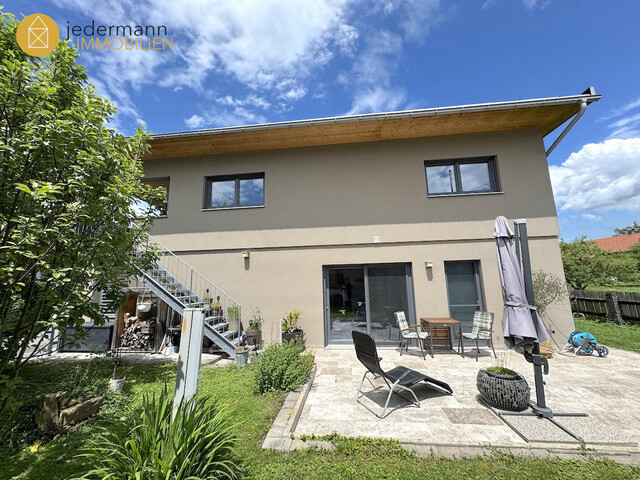Why Migrants Are Less Often in the Hospital

Around 20 percent of the domestic population do not have Austrian citizenship. However, this group accounts for only 9.4 percent of hospital patients. Similarly low is the proportion (9.8 percent) of nights spent in the hospital. They use the healthcare system less but are more likely to be readmitted, write Viennese researchers in the "Journal of Migration and Health".
Data from 13 million hospital stays analyzed
To find out how the domestic healthcare system is used, the team from the Complexity Science Hub (CSH) Vienna and the Medical University (MedUni) Vienna analyzed around 13 million hospital stays of four million people between 2015 and 2019 in Austria. Migrants living in this country without Austrian citizenship have significantly lower hospitalization rates - with one exception: Germans account for the most hospital stays per capita.
North Macedonians, Croats, and Serbs rarely in hospital
Among men, Austrians are ahead of Slovaks and Italians, while North Macedonians, Croats, and Serbs are the least frequently in the hospital according to the analysis. Among women, excluding pregnancy stays, Germans lead ahead of Syrians and Austrians, with the lowest hospitalization rate among Russians, North Macedonians, and Serbs. This rate indicates the likelihood of a person of a certain nationality being hospitalized within a year.
In contrast, the readmission rate, or how often people are readmitted to the hospital within a year, is higher among migrants than among people with Austrian citizenship. This could be a possible indication that their first hospital visits occur at more advanced stages of illness, according to lead author Elma Dervic from CSH in a press release.
Readmission rate highest among Syrians
Among men, Syrians are ahead of Russians and Afghans. Only for Hungarians is the readmission rate significantly lower than for Austrians. For women, this mainly concerns Afghan, Serbian, and German women, with North Macedonian women at the bottom. However, the readmission rate for Turkish, Italian, and other nationalities is also below that of Austrian women.
To understand why migrants are less likely to be hospitalized, a look was taken at the so-called "Healthy Migrant" effect and possible access barriers. The former refers to when people who move to another country are relatively young and healthier than the average population there. If this were responsible for lower hospitalization rates, the readmission rates should not be increased either.
Access Barriers or Exceptionally Healthy?
Access barriers such as language or cultural barriers could also lead to lower hospitalization rates. This would explain increased readmission rates because illnesses are already more advanced. In line with the "Healthy Migrant" effect, for example, people from Hungary, Romania, and - in the case of women - Turkey have lower readmission rates. Increased rates among patients from Russia, Serbia, and - for men - Turkey suggest more towards access barriers.
"Our study shows that the different use of the Austrian healthcare system by people of different nationalities cannot be explained solely by the 'Healthy Migrant' effect or cultural barriers," said Peter Klimek from CSH and MedUni Vienna. Rather, differentiation by nationality is necessary. Future measures should facilitate access - especially to outpatient care. Klimek mentioned translation services or orientation aids in the healthcare system as examples.
Mental Illnesses Less Frequently Diagnosed
According to the study, a comparison of initial admissions provides an indication that migrant population groups suffer more frequently from chronic or severe illnesses: They were less likely to end up in general and vascular surgery, but more often in departments of internal medicine, hematology, oncology, and radiology. There are also indications that mental illnesses are underdiagnosed in non-Austrians. For people with German citizenship, these differences are significantly smaller.
(APA/Red)
This article has been automatically translated, read the original article here.
Du hast einen Hinweis für uns? Oder einen Insider-Tipp, was bei dir in der Gegend gerade passiert? Dann melde dich bei uns, damit wir darüber berichten können.
Wir gehen allen Hinweisen nach, die wir erhalten. Und damit wir schon einen Vorgeschmack und einen guten Überblick bekommen, freuen wir uns über Fotos, Videos oder Texte. Einfach das Formular unten ausfüllen und schon landet dein Tipp bei uns in der Redaktion.
Alternativ kannst du uns direkt über WhatsApp kontaktieren: Zum WhatsApp Chat
Herzlichen Dank für deine Zusendung.








